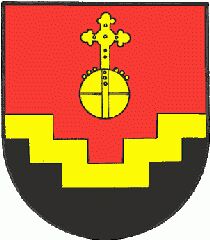Veitsch: Difference between revisions
Knorrepoes (talk | contribs) m (Text replace - "|width="15%"|50 px|right |}<seo title="Wappen, Gemeindewappen" />" to "|width="15%"|50 px|right |}<seo title="Wappen von Österreich" />") |
Knorrepoes (talk | contribs) m (Text replace - "|}<seo title="Wappen von Österreich" />" to "|}<seo title="|}<seo title="Wappen, Gemeindewappen, Stadtwappen, Marktwappen, Österreich" />" />") |
||
| Line 3: | Line 3: | ||
|width="70%" align="center" |'''Heraldry of the World<br>Civic heraldry of [[Austria]] - [[Austria|Österreichische Gemeindewappen]]''' | |width="70%" align="center" |'''Heraldry of the World<br>Civic heraldry of [[Austria]] - [[Austria|Österreichische Gemeindewappen]]''' | ||
|width="15%"|[[File:Austria.jpg|50 px|right]] | |width="15%"|[[File:Austria.jpg|50 px|right]] | ||
|}<seo title="Wappen | |}<seo title="|}<seo title="Wappen, Gemeindewappen, Stadtwappen, Marktwappen, Österreich" />" /> | ||
'''VEITSCH''' | '''VEITSCH''' | ||
Revision as of 18:36, 1 January 2014
| Heraldry of the World Civic heraldry of Austria - Österreichische Gemeindewappen |
" />
VEITSCH
State : Steiermark
District : Mürzzuschlag
Origin/meaning
The arms were granted on December 15, 1980.
In the Middle Ages, Veitsch was property of the Holy Roman Empire (Reichsgut). Later on, it passed to the Benedictine abbey of St. Lambrecht. With regard to this, the arms was designed in the tinctures of or and sable (gold and black) as in the arms of the Holy Roman Empire and or and gules (gold and red) as in the abbey arms.
There are surface mines for magnesite in the municipality; the steps in the arms represent the mining sites. The orb is an attribute of St. Veit (St. Vitus), one of the patron saints of the Holy Roman Empire. He is also the patron saint of the Veitsch church.
Literature : Image provided by Karl Palfrader (k.palfrader@aon.at), MStLA 31 (1981), p. 38

